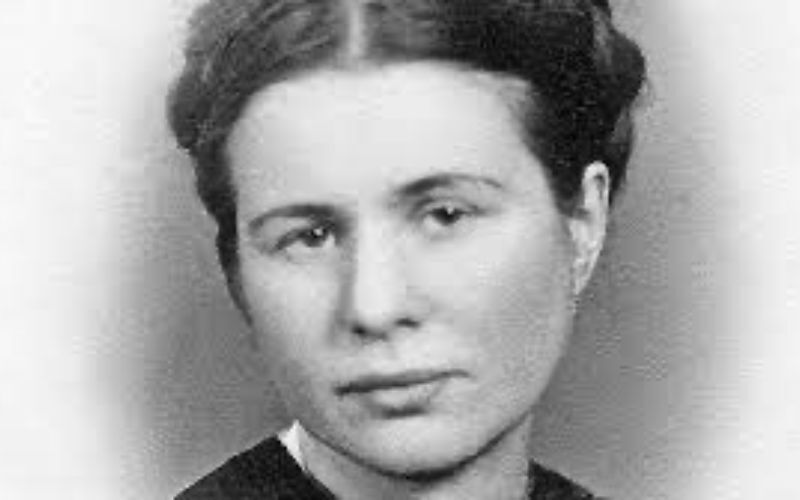Lily Ghebrai

My name is Lily Ghebrai, and I am a senior at Lakeside School in Seattle, Washington. Given my Eritrean background, my family’s emigration to America, and my love for travel, I hope to go to Iran this spring with the United Nations Association of Seattle to engage in serious discussions with students, young children, and other citizens about the educational needs of the Iranian people. I hope to serve as a representative of the United States and help to facilitate honest, friendly conversation, as well as serious, intellectual debates. As an immigrant and speaker of three languages – English, French, and Tigrinya – I am very comfortable in foreign countries and am excited to immerse myself in Persian culture. Through this trip, I hope to hone my diplomacy skills and represent Americans in a positive light. I sincerely believe that this trip will further supply me with the global insight and cultural acuity that is necessary to bring people together, encourage dialogue, and advocate for cross-cultural understanding. When I return, I plan to speak and write about my experiences to further pursue my mission of bridging gaps between the U.S. and Iran. Here is the story of my family's journey to the United Staters. It is primarily a story of my parents, Almaz Tesfay and Fitsum Ghebrai.
Brief History of Eritea: Ethiopia’s annexation of Eritrea, which occurred in 1962, led to the emergence of an Eritrean armed struggle a year later. The first shot, fired by Eritrean guerilla fighters, led to a turning point in East African History – Eritrea was going to fight for its independence. By 1973, the Eritrean People’s Liberation Front, commonly referred to as EPLF, gradually gained strength and momentum, recruiting armies, educating citizens, and mentally preparing itself for one of the most gruesome wars in Eritrean history. Due to its growing military force, Eritrea was able to liberate a number of its cities by 1977, with the exception of three – the ports of Massawa and Assab, and the capital city of Asmara.
Along with the freedom fighters, the citizens were also deeply involved in the war. Young children joined school youth groups that were aimed at advancing military efforts and supporting troops. These co-gender groups produced fruits and vegetables to send to the military camps, visited hospitals where they prepared meals and offered entertainment to wounded troops, and helped rebuild parts of the city that the war had damaged. To many, it looked as if freedom had nearly arrived. However, while the entire country’s hard work and determination gave Eritrea a significant advantage in the war, by the end of 1978, Ethiopia was revamped. With the Soviet Union on its side, Ethiopia was now a huge military force, thwarting Eritrea’s every move. Children who had joined these youth groups, such as my parents, had to flee their homes or risk being killed by Ethiopian troops. These children were sent to the strongholds of the front to begin their schooling while others were sent off to the military training camps. For the next thirteen years, Eritrea fought the Ethiopian invasion with bravery, perseverance, and heart, until finally Eritrea defeated the Ethiopian army and won its independence in 1991.
Eritrea
As she lay there on the hard earth, she desperately tried to sleep. The humidity of the air nearly choked her, while bugs scuttled all over her tired body. Rest was essential because, sadly, another full day of military training awaited her, even though she was only eleven. Some ten miles away in the boys’ camp, a young boy, shirtless, sat near his tent, thinking about the months that lie ahead of him. Those months would soon turn into years. The little girl and the little boy, my parents, would spend the rest of their childhood fighting a war they did not understand. Little did they know that their tragic experience would set the lives of my sisters and me on a very different path.
When the war began, my parents’ lives and futures were seized from them – their families, freedom, and their aspirations for their educations – all gone. In 1978, my parents enlisted in the Eritrean Army during the Eritrean-Ethiopian war; my mother was eleven, and my father was fifteen. They both had goals; my mother wanted to become an astronaut, and my father had a promising future as a photographer, but the war stripped them of those opportunities. When Eritrea won its independence in 1991, my parents were finally allowed to return to the lives they once had… or what remained, but soon they worried about me.
I was born in Eritrea in 1992, and my parents desperately tried to provide a good life for me there. The war had taken a huge toll on Eritrea’s economy, which made it very difficult for my father to find a job. Even after he secured a position with the President as his cameraman, money was scarce, and educational opportunities were limited (Eritrea had only been a nation for less than a year). My mother and father also had another concern – what would become of their newborn daughter? What would happen if she were raised in Eritrea? Sure, she would be with her family, but what about her adult life? What would she become? Who would she become? These types of questions drove my father to make a fateful decision.
One evening, when my father came home, my mother noticed that he was unusually excited. She curiously watched him as she prepared his stew. He sat down at the table and instead of asking for tea, as he usually did, he blurted out, “Let’s move to America!”
My mother was dumbfounded – had she heard him correctly? She looked into his face and realized that he was serious. My mother had always marveled at all of the educational opportunities that America had to offer, but she was frightened. How could two poor Eritreans and their one year old daughter move to America? Although they spoke little English, they had no job offers or college educations. In Eritrea, they had a chance, although limited, to rebuild their lives. My mother could pursue her education, and my father could continue working for the President as his cameraman. At the same time, however, my mother had heard of women in America who attended school and became doctors and lawyers. She was sure that a future – although somewhat unclear and murky then – was waiting for them here. More importantly, she knew that a future was waiting here for me.

